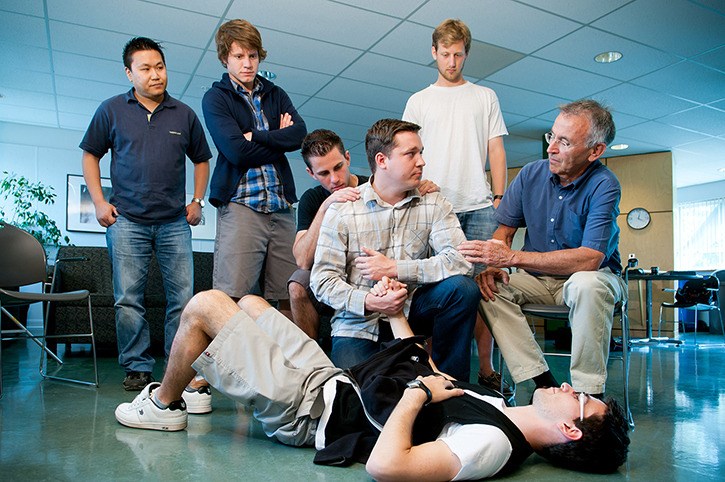Cpl. Tim Laidler raised his rifle, aimed it at the figure dressed in black who was cycling headlong towards the guarded gate at the Kandahar air base, and started to pull the trigger.
I remember, in that moment, I was going to shoot him. I just knew it, says Laidler.
But he didnt. He paused for a split second and realized that his target was not a Taliban insurgent, but a teenaged boy. In that same moment, the youth turned in his tracks and rode off.
This near-shooting is one of many traumatic experiences that left Laidler mentally shaken upon his return to Vancouver after an eight-month tour of Afghanistan with the Canadian Forces in 2008.
It was like a movie reel playing over and over in my mind, explains the 27-year-old. He would remember the dead and wounded and imagine scenarios where, had he acted differently, he could have prevented tragedy.
Id feel my face going bright red and I would start to get really upset and angry, then I would feel really down and low after.
Laidler began to experience nightmares, flashbacks and feelings of apathy. Then, in 2010, he discovered the UBC Veterans Transition Program (VTP), which helps men and women returning from military service re-establish healthy civilian lives.
Laidler learned communication skills, stress management and, through re-enactments, he came face-to-face with the Afghan teenager he almost shot.
Laidler is now executive director of the newly formed Veterans Transition Network, established with $1.45 million in donations from the Royal Canadian Legion, Veterans Affairs Canada and other organizations. Thanks to this funding, the non-profit network will be able to expand its treatment program across Canada.
UBC counselling psychology professor Dr. Marvin Westwood co-founded the VTP in 1999. He says many soldiers bring home a soul injury caused not so much by their own near-death experiences, but by memories of being unable to help a situation.
A lot of the military, their values are to help others, so if they cant save someones life or they cant protect the child in a refugee camp, that haunts them, Westwood says. The biggest pain for me is when they dont get treatment and they have to medicate with drugs or alcohol.
Research has shown the VTP reduces trauma symptoms, decreases depression and enhances self-esteem. The biggest difference is on depression scores, says UBC assistant professor Dr. Dan Cox, who heads the programs research wing.
Current data is based on the veterans symptoms immediately before and after treatment. Now, Cox is working on a follow-up study to see if these gains persist.
Today, Laidler likens his upsetting memories of Afghanistan to a black-and-white photograph rather than a repeating movie.
When I dropped some of my baggage from overseas it opened up a whole new capacity inside me to do more and to be more focused, he adds, noting he is now working on his masters of counselling psychology at UBC.
So far, 275 veterans have participated in the VTP. With the national expansion, Laidler hopes to reach 2,000 vets over the next five to 10 years.



